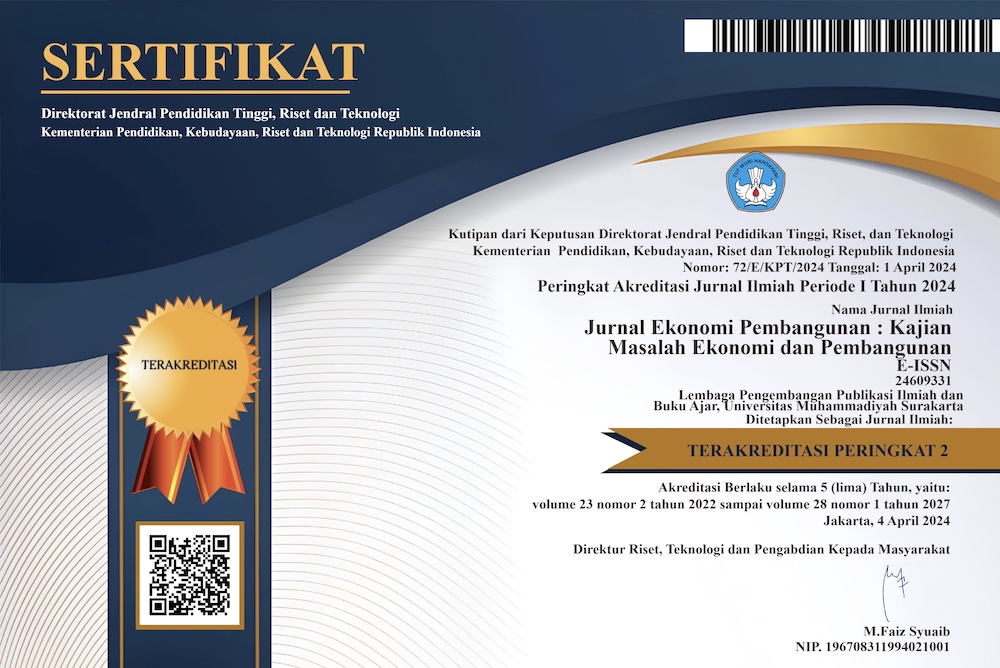Do Corruption and Institutions Contribute to the Economic Growth in ASEAN Countries During 2000-2018?
DOI:
https://doi.org/10.23917/jep.v24i1.21426Keywords:
corruption, institutions, economic growth, Solow Growth ModelAbstract
This study attempts to estimate the impact of corruption and institutions on economic growth in ASEAN countries during 2000-2018. The corruption perception index and six indicators of institutions are utilized. The basic empirical model is derived from the theory of the Solow Growth Model. Two econometrics techniques were employed: statics panel data and panel-vector autoregression. The findings exhibit that the corruption perception index does not contribute to economic growth. Conversely, some institutional indicators (voice and accountability and control of corruption) significantly impact economic growth under random effects model estimation. Moreover, the quality of regulation and the fight against corruption have a significant impact on economic growth in terms of panel-vector autoregression. Therefore, governments should strengthen anti-corruption institutions and raise the standard of institutions on both a national and an ASEAN level.
Downloads
















